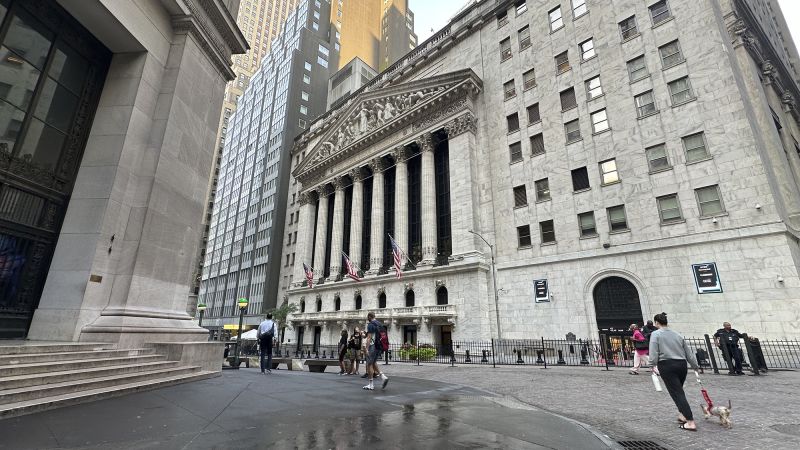September started off on a rough note for Wall Street as a disappointing economic report caused the Dow to plummet by more than 600 points. The Institute for Supply Management’s manufacturing report showed a fifth consecutive month of declines, adding pressure to traders who are awaiting key economic data in September, such as Friday’s jobs report, next week’s inflation readings, and the anticipated rate cut from the Federal Reserve later in the month. The broader market also suffered losses, with the Nasdaq Composite falling over 3% due to concerns among tech investors over Nvidia’s 9% drop and doubts about the overall impact of AI technology on tech companies’ financial performance.
The S&P 500 also experienced a 2% decline, reflecting the overall negative sentiment in the market. Historically, September has been a challenging month for stocks, and the recent downturn comes after a similarly rough start to August when major indices experienced significant losses. Markets responded to a weaker-than-expected jobs report, raising fears that the Fed’s handling of inflation could lead to a recession. However, markets eventually corrected, closing out the month with gains after the initial turbulence.
In addition to stock market woes, oil prices also faced downward pressure on Tuesday amid concerns about weakening global demand. OPEC is expected to increase output next month despite production disruptions in Libya, leading to a drop in oil prices. The international benchmark Brent fell to $73.70 a barrel, while the US benchmark West Texas Intermediate closed slightly above $70 a barrel. This situation is still developing, and updates are expected as the market continues to react to changing economic conditions.
Overall, the beginning of September has been challenging for financial markets, with major indices experiencing significant losses driven by disappointing economic data and uncertainties surrounding key upcoming events. The tech sector, in particular, has been hit hard by skepticism about the valuation of AI companies like Nvidia and concerns about the broader impact of AI technology on the industry. Despite the recent turbulence, markets have historically shown resilience and the ability to bounce back after periods of volatility, as was the case in August when initial losses were followed by gains. Oil prices have also faced downward pressure due to concerns about softening global demand and OPEC’s plans to increase output, suggesting that economic conditions continue to be a major factor influencing market performance.


